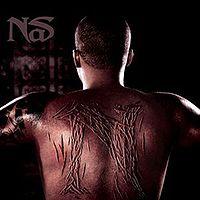
Nas
Untitled (2008)
Jordan Rogowski
Few individuals have had as much impact on hip-hop, and few individuals have spurred as much discussion on the genre, as Nasir Jones.
Known better by his stage name, Nas, the Queensbridge rapper is back for the ninth time with Untitled. What's important is that he's back with a renewed hunger, a lyrical ferocity that earned him the "Nasty Nas" moniker that he wore like a badge of honor in the mid-`90s, a lyrical ferocity that has been sadly absent from much of his (albeit still solid) music since 2001's Stillmatic.
Untitled, the new title after Nas received a slew of complaints about the original name, Nigger, is a striking look at the hip-hop industry and the world at large. The critical lens with which Nas looks at single-parent households ("Queens Get the Money"), social revolution ("Louis Farrakhan") and the assumed responsibilities of Barack Obama to the black community ("Black President") makes everything clear for scholars and laymen alike.
Lupe Fiasco once wrote that dumbing thoughts down makes those thoughts harder to understand; this is something that Nas understands, and it's something he's careful not to implement on each of Untitled's 15 tracks.
"America" is Nas in peak lyrical form -- and in penning an unmitigated indictment of the conventions and regulations this country clings to, he has opened the gates for discourse not just in the black community, but for anyone listening. In just four minutes, the song runs through a gamut of problems, from the avenues of success often sought in a black communities ("We in chronic need of a second look of the law books, and the whole race dichotomy / Too many rappers, athletes, and actors, but not enough niggas in NASA / Who give you the latest dances, trends, and fashion, but when it comes to residuals, they look past us / Woven into the fabric, they can't stand us, even in white tees, blue jeans, and red bandanas") to the discrimination women feel to this day ("Love to sit in on the Senate, and tell the whole government y'all don't treat women fair / She read about herself in the Bible, believing she the reason sin is here / You played her, with an apron / Like bring me my dinner, dear, she the nigger here").
Nas continues to show how in tune with the storylines of the times he really is on "Black President." Beginning with that familiar Tupac sample "I know it seems heaven sent, but we ain't ready to see a black president" and clips of presidential hopeful Barack Obama exclaiming "change the world!", Nas launches into a track that's equal parts hope ("but on a positive side, I think Obama provides hope and challenges minds / Of all races and colors to erase the hate") and reservation ("Y'know these colored folks and negroes, hate to see one of their own succeeding / America, surprise us and let a black man guide us") . Gliding atop a drum-heavy track with piano and organ humming in the background, the flow is impeccable and the bars are full of reverence, while maintaining an objective look at the kind of leader that Barack Obama has the capacity to be.
Nowhere, though, does Nas' flow shine brighter than on the album's lead single, "Hero." The gorgeous, mesmerizing beat twinkles over a slow drum loop, and Escobar brings his quick, hard-hitting flow to the forefront, reflecting on his career and how he's able to maintain it: "Every time I close my lids, I can still see the borough, I can still see the Bridge / I can still see the dreams that my niggas ain't never lived to see / [â¦] / As I grow yearly, I can see things more clearly / That's why they fear me."
On "Sly Fox," as Nas' delivery becomes slower and more meticulous, it's clear he wants every word rapped about the dangers of listening to every word of television news sources to be heard, but it's the last verse in "Hero," the verse that details his own struggle against his record company to have the album released as Nigger that shows what is most important about this effort from Nas -- his mind, soul, and wit are sharper than ever before.
This universal apartheid, I'm hog-tied, the corporate side / Blocking y'all from going to stores and buying it / First L.A. and Doug Morris was riding wit it but Newsweek article startled big wigs / They said, Nas, why is he trying it? My lawyers only see the Billboard charts as winning / Forgetting -- Nas the only true rebel since the beginning, Still in musical prison, in jail for the flow / Try telling Bob Dylan, Bruce, or Billy Joel they can't sing what's in their soul."
Luckily, for the world of music as a whole, Nas' spirit is too strong to be stifled; he is, after all, the only true rebel since the beginning.